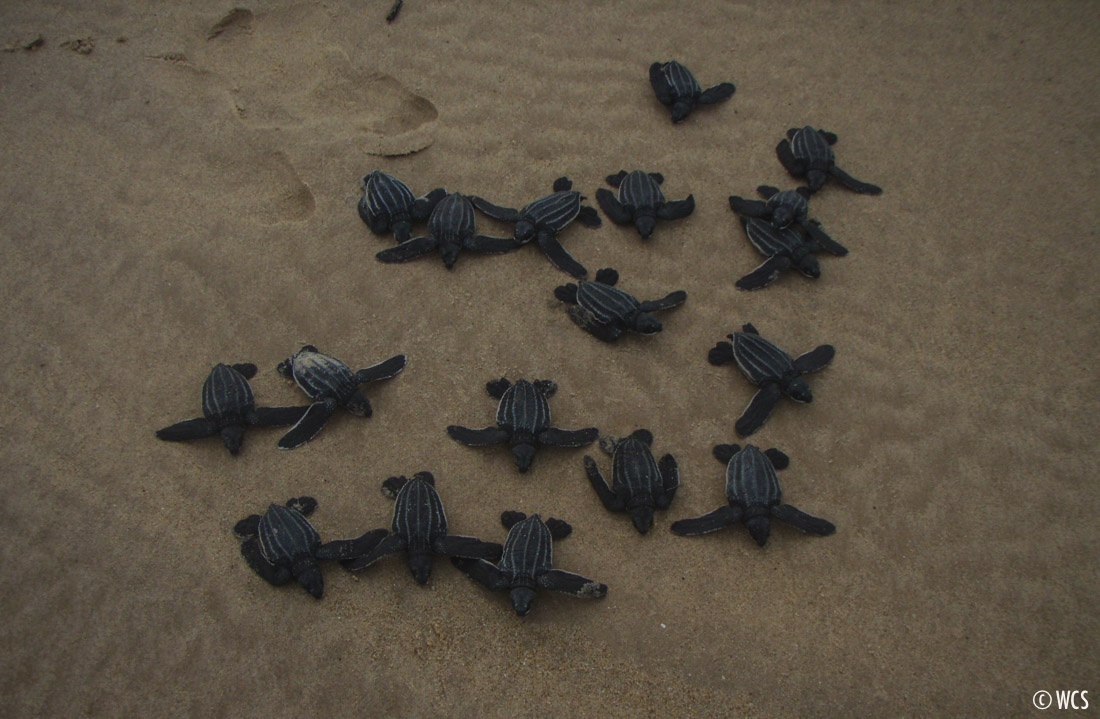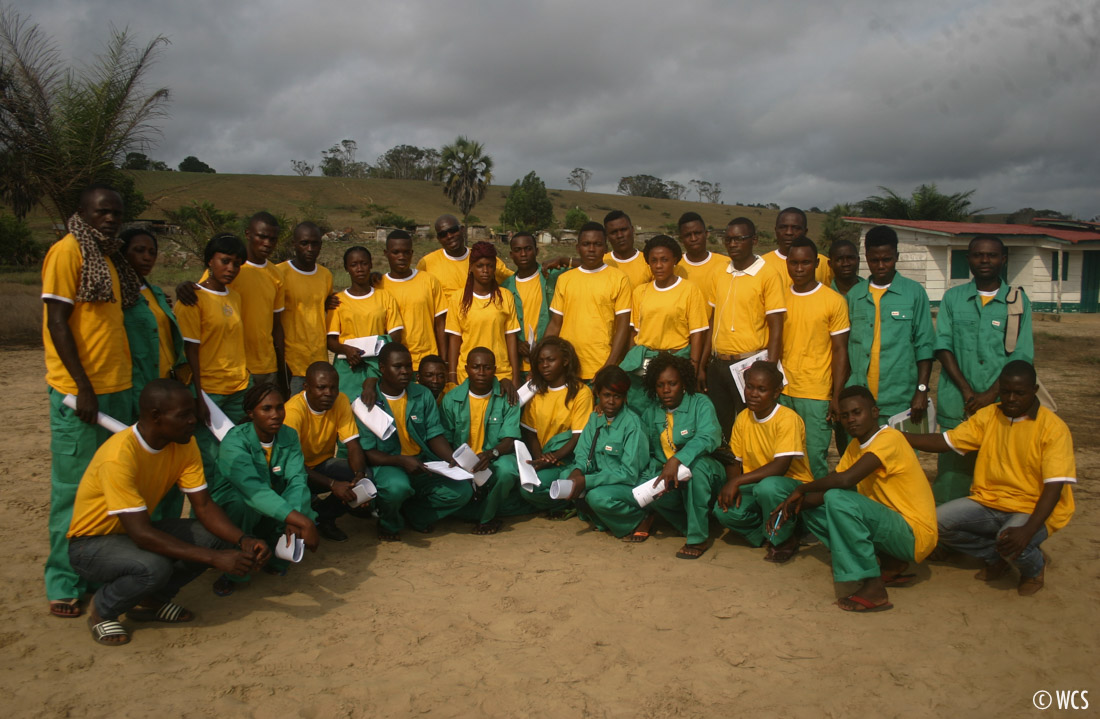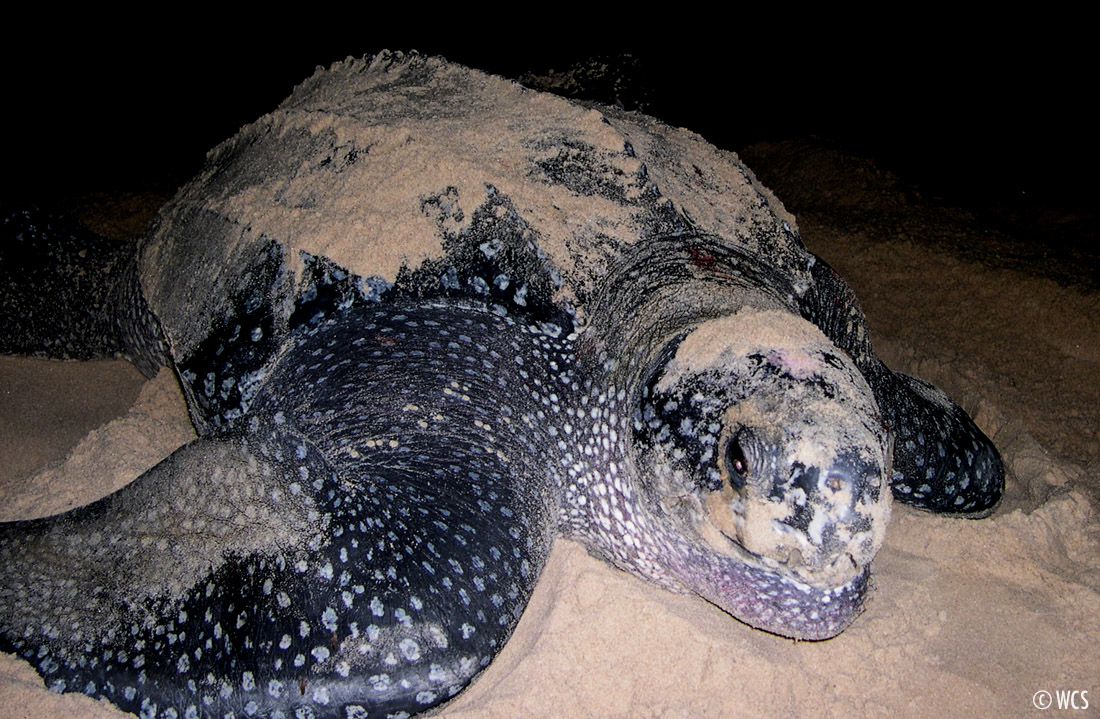
Conkouati-Douli’s turtle guardians
On October 01-03 2016 the WCS Conkouati-Douli National Park team co-sponsored with Congolese NGO RENATURA a training session in the village of Belello for the teams which will monitor and protect Congo’s beaches during the current marine turtle nesting season. Forty-eight trainees (30 from WCS Conkouati and 18 from RENATURA) spent two days learning how to identify the different turtle species that frequent Congo’s Atlantic coast, as well as how to measure and tag turtles, identify tracks and mark nests, and how to interact with fishermen encountered in the different sites. WCS has been actively working to protect turtles in Conkouati since 2000, and of particular note, for the 10th year in a row, the six Conkouati crews (5 members/site) include two all-female teams.

With funding from US Fish and Wildlife Service and the EU, via RENATURA, these six teams will monitor the 57 kilometers of beach in Conkouati-Douli National Park for the presence of nesting females from October 2016 to April 2017. Conkouati hosts five species of marine turtles, including Green, Hawksbill, Loggerhead, and particularly Olive Ridley and Leatherback, all of which are threatened with extinction due to fishing (bycatch or trauma from boats), poaching, pollution, coastal development and climate change. In fact, the nesting beaches in Conkouati and neighboring Mayumba National Park in Gabon are the second most important in the world for nesting leatherbacks, after the beaches in Guyana. Marine turtles, which evolved over 100 million years ago, can lay hundreds of eggs in a single season (female turtles reach breeding age after roughly 35 years, and only then do they return to the beach of their birth to nest), although only a few of the hatchlings survive to maturity.
”Sea turtle populations all over the world have been declining at alarming rates in recent decades. Sea turtles are clearly under threat of extinction due to human activities. IMMEDIATE ACTION is required to reverse the decline of sea turtle populations the world over. - World Turtle Trust
For the next six months the teams will patrol the beaches at night, each responsible for roughly 10kms, which are covered twice each night. They will mark the presence of nests, of turtle emergences without nests, and where possible they will tag the turtles to add to the international turtle database. They will maintain contact with nearby fishing camps, to discourage poaching of turtles and raiding of nests for the eggs, and to help release turtles caught in fishing nets. Fishermen are encouraged to report trapped turtles, and in exchange the project pays to repair their nets. This arrangement clearly leads to improved survivorship for the marine turtles using the beaches of Conkouati, and it helps to foster better relationships between local communities and the Park management team.



Darius Macliver
Hello, nice write up for the turtle protection.
I am in Pointe Noir visiting for the month of November 2017.
Do you conduct tours? I’m very interested to see the beach monitoring and possible site of seeing turtles hatch.